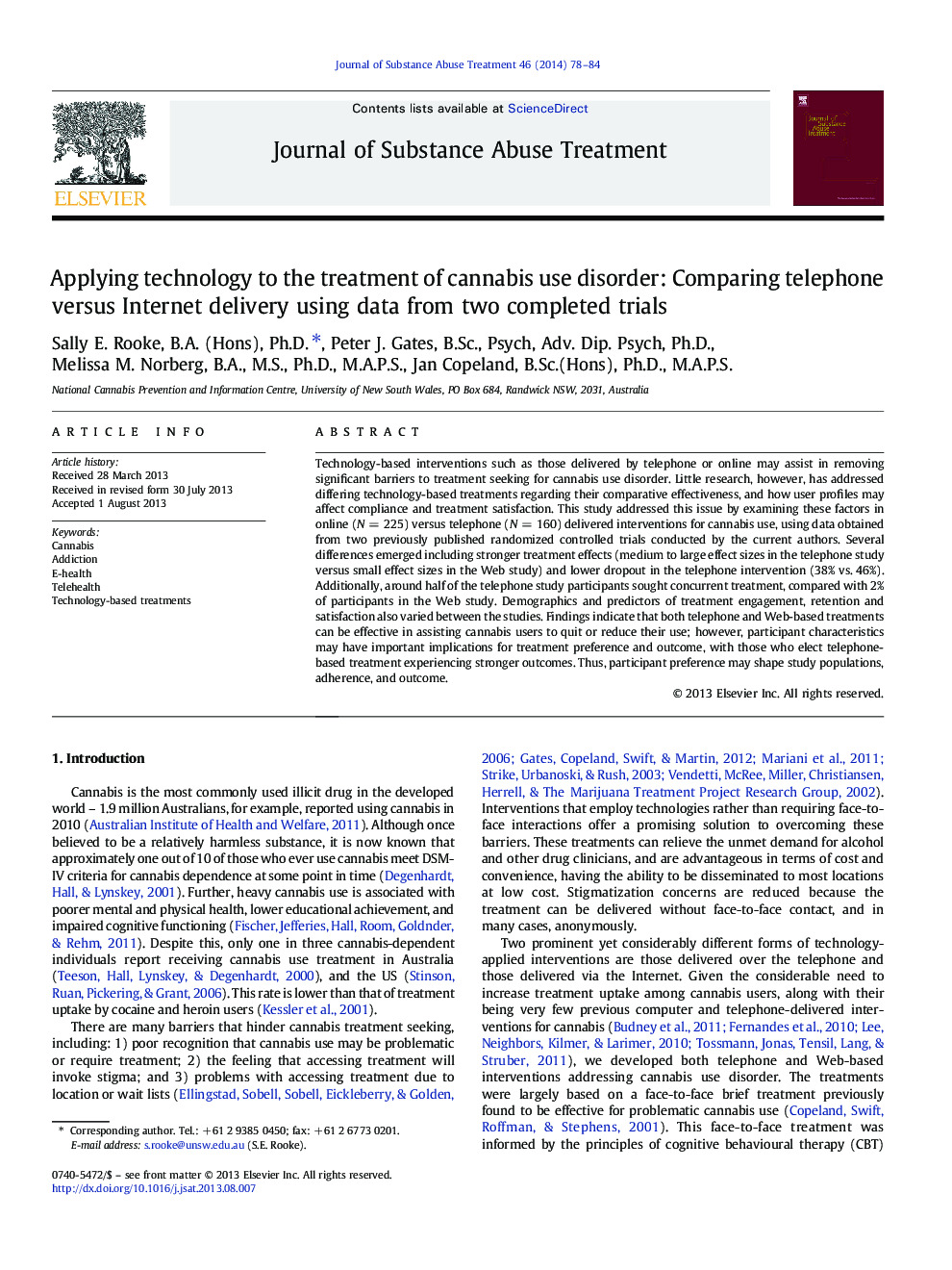| Article ID | Journal | Published Year | Pages | File Type |
|---|---|---|---|---|
| 329766 | Journal of Substance Abuse Treatment | 2014 | 7 Pages |
Technology-based interventions such as those delivered by telephone or online may assist in removing significant barriers to treatment seeking for cannabis use disorder. Little research, however, has addressed differing technology-based treatments regarding their comparative effectiveness, and how user profiles may affect compliance and treatment satisfaction. This study addressed this issue by examining these factors in online (N = 225) versus telephone (N = 160) delivered interventions for cannabis use, using data obtained from two previously published randomized controlled trials conducted by the current authors. Several differences emerged including stronger treatment effects (medium to large effect sizes in the telephone study versus small effect sizes in the Web study) and lower dropout in the telephone intervention (38% vs. 46%). Additionally, around half of the telephone study participants sought concurrent treatment, compared with 2% of participants in the Web study. Demographics and predictors of treatment engagement, retention and satisfaction also varied between the studies. Findings indicate that both telephone and Web-based treatments can be effective in assisting cannabis users to quit or reduce their use; however, participant characteristics may have important implications for treatment preference and outcome, with those who elect telephone-based treatment experiencing stronger outcomes. Thus, participant preference may shape study populations, adherence, and outcome.
